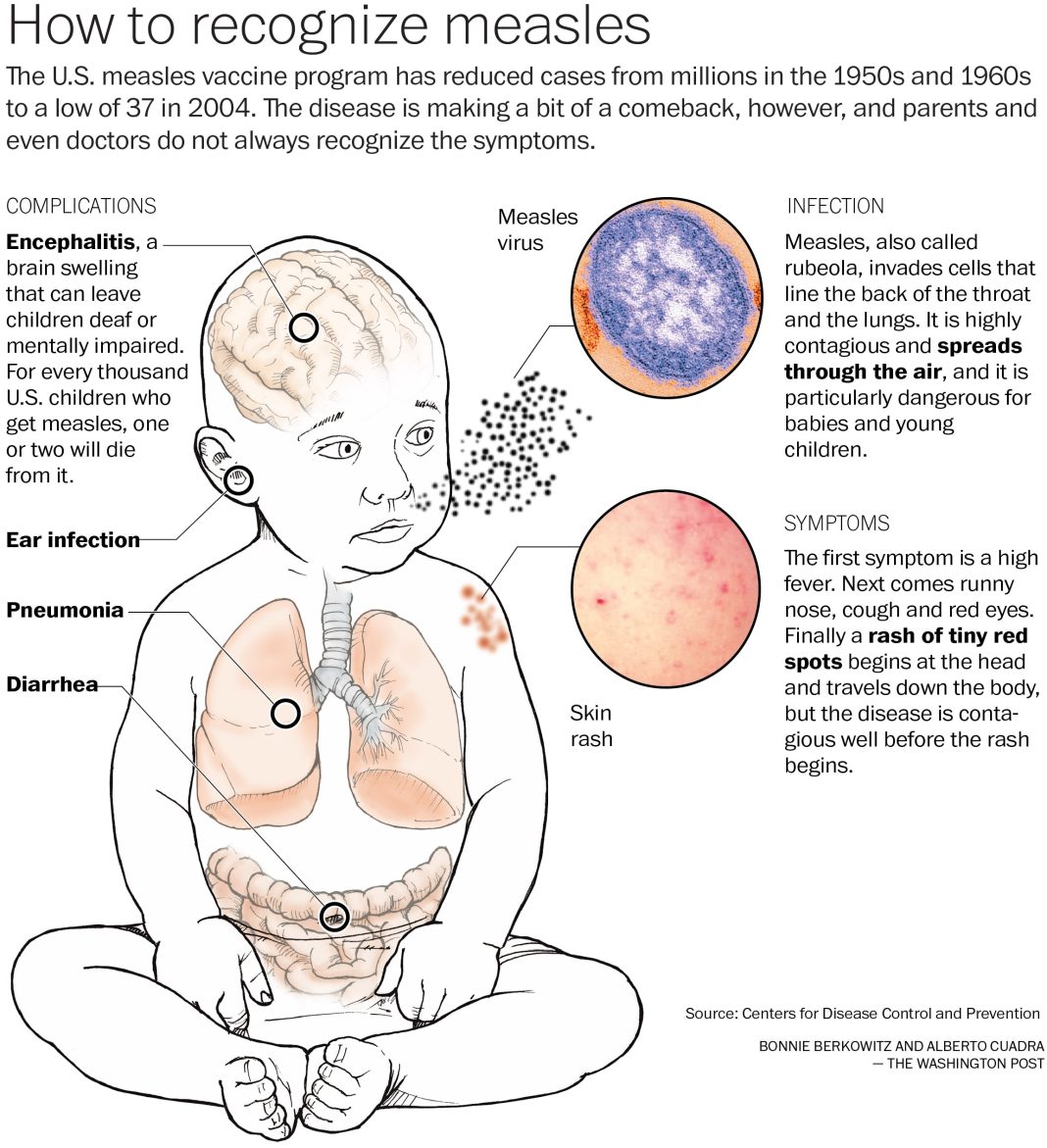 Public Health Commissioner Robbie Goldstein, MD, PhD, has issued an alert regarding a recent case of measles in an international traveler who passed through Boston. The traveler was infectious and visited public locations, potentially exposing others to the disease. Measles is known for its high contagiousness, as the virus can be spread through respiratory droplets when an infected person coughs, sneezes, or talks. The virus can remain in the air for up to two hours, making it easy for nearby individuals to inhale it and become infected.
Public Health Commissioner Robbie Goldstein, MD, PhD, has issued an alert regarding a recent case of measles in an international traveler who passed through Boston. The traveler was infectious and visited public locations, potentially exposing others to the disease. Measles is known for its high contagiousness, as the virus can be spread through respiratory droplets when an infected person coughs, sneezes, or talks. The virus can remain in the air for up to two hours, making it easy for nearby individuals to inhale it and become infected.
With the recent increase in measles cases and outbreaks worldwide, Dr. Goldstein emphasizes the importance of vaccination in preventing infection. People who are not vaccinated are at a higher risk of contracting the disease. To protect themselves, individuals should ensure they are up to date on their measles immunization status. The Massachusetts Department of Public Health (DPH) recommends getting vaccinated with at least one dose of the Measles, Mumps, and Rubella (MMR) vaccine.
In the case of exposure to measles, immediate vaccination within 72 hours may prevent the development of the disease. Vaccination beyond this window still provides protection from subsequent exposures. DPH, along with local health departments and healthcare providers, is working to identify and contact individuals who may have been at high risk of exposure to the infected traveler. However, it can be challenging to identify those who were exposed on public transportation.
Symptoms of measles typically appear 10 days to two weeks after exposure and initially resemble those of a cold, including fever, cough, runny nose, and red eyes. A rash then develops on the skin two to four days after the initial symptoms. The rash typically starts on the head and spreads downward before eventually disappearing. It’s important to note that individuals with measles can be contagious up to four days before the rash appears and for four days afterward.
DPH has provided a list of specific locations and times where individuals may have been exposed to the infected traveler. Those who visited these locations during the specified dates and times are advised to contact their healthcare provider to confirm their immunization status and take necessary precautions if needed. It’s crucial to call ahead before visiting a healthcare facility if symptoms develop to avoid potentially infecting others.
To prevent the spread of measles, it is vital for individuals to ensure they have received the recommended vaccinations. Children should receive their first dose of the Measles-Mumps-Rubella (MMR) vaccine between 12 and 15 months of age, followed by a second dose. School-aged children require two doses of the MMR vaccine. Adults should have at least one dose of the MMR vaccine, while certain high-risk groups, such as international travelers, healthcare workers, and college students, may need two doses. Adults born in the US before 1957 are considered immune due to past exposures.
It’s important to note that individuals who have previously had measles or have received two doses of the vaccine are unlikely to develop the disease even if exposed. For more information, individuals can contact their local health department or reach out to the Massachusetts Department of Public Health at 617-983-6800. Additional information about measles can also be found on DPH’s website.
In conclusion, staying vigilant and ensuring proper vaccination is crucial in preventing the spread of measles. The recent case of measles in an international traveler highlights the importance of taking necessary precautions and seeking medical advice if any symptoms develop. By following the recommended vaccination guidelines, individuals can protect themselves and contribute to the overall prevention of measles outbreaks.

